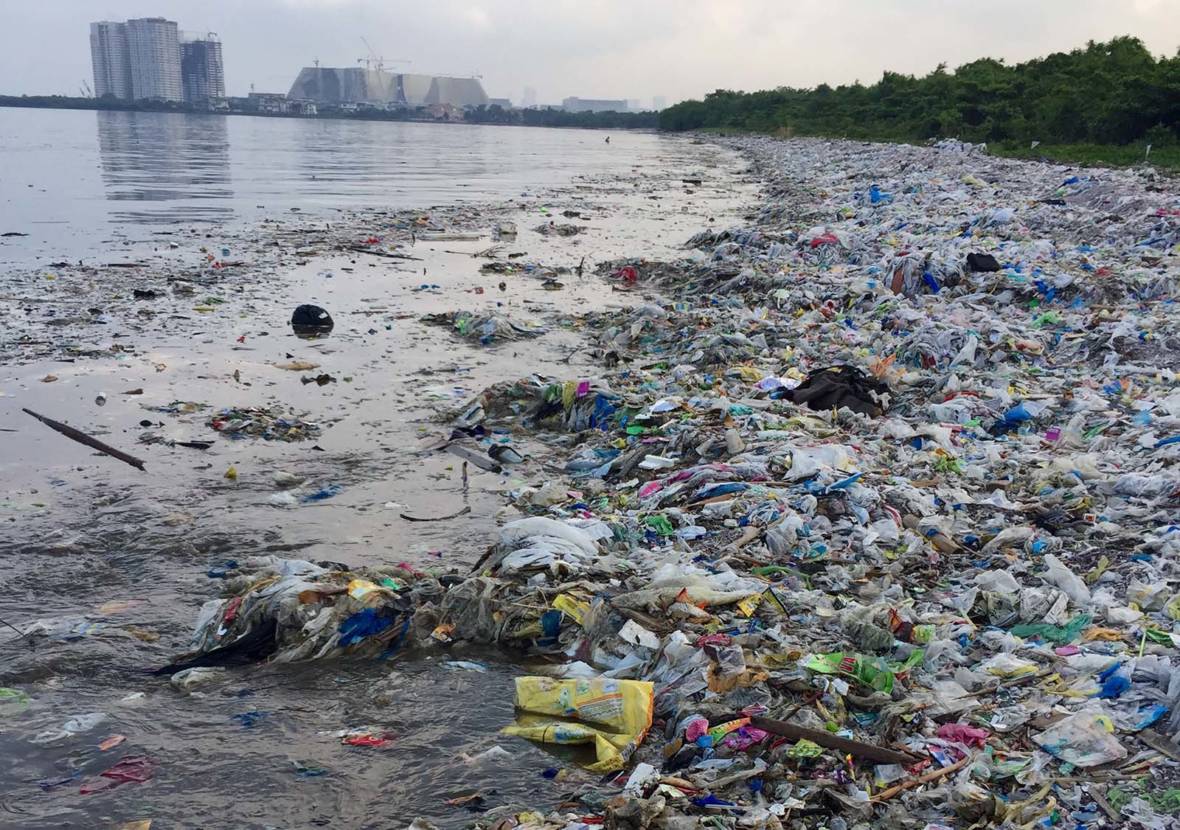Just In Time For Earth Day — A Plastic-Eating Enzyme!
Language
Reading Level
Listen to Article

The Earth Day Network may have an unexpected ally in its quest to solve the global plastic pollution crisis: bacteria. More specifically, an enzyme produced by the Ideonella sakaiensis microbes. Dubbed PETase, it can expertly break down PET (polyethylene terephthalate), one of the most common types of plastic, within days, instead of the over 450 years it takes the synthetic material to decompose naturally.
Ideonella sakaiensis was first discovered devouring plastic in a waste dump in Japan in 2016. The bacterium had naturally evolved to produce an enzyme that could break PET’s strongly-bonded molecules into a thin layer of plastic within six weeks. Since then, researchers from the UK’s University of Portsmouth and the US Department of Energy’s National Renewable Energy Laboratory (NREL) have been studying the enzyme’s crystalline structure to investigate how it eats through the material.
An ultra-high-resolution 3D model of PETase revealed it was similar to cutinase, an enzyme that breaks down cutin, a polymer-like substance plants produce to protect themselves. Assuming PETase might be related to cutinase, the researchers manipulated the protein to study its properties and make it more similar to the latter. Instead, they unintentionally created a mutant enzyme that was 20 percent more effective at breaking down plastic than the original version of PETase. “Serendipity often plays a significant role in fundamental scientific research and our discovery here is no exception,” said John McGeehan, professor of structural biology at the University of Portsmouth.

Though PETase does not currently feast at a rate that could reduce the 9 billion tons of plastic on our planet, scientists hope that it could be similarly tweaked to be more efficient. “It’s clear that significant potential remains for improving [PETase’s] activity further,” said NREL materials scientist Nic Rorrer.
The news gets even better. The international team, which published their findings in the journal Proceedings of the National Academy of Sciences on April 16, 2018, believes the enzyme could do more than devour the plastic. It could make it reusable by breaking it down into its simple chemical units. Currently, plastic bottles can only be recycled into fibers for clothing or carpets, but the enzyme could give them a second life so we don’t have to continue using new resources. “What we are hoping to do is use this enzyme to turn this plastic back into its original components, so we can literally recycle it back to plastic,” said McGeehan. “It means we won’t need to dig up any more oil and, fundamentally, it should reduce the amount of plastic in the environment.”

This is not the first time that bugs have been a surprising boon in the battle against plastic pollution. Last year, Spanish researchers discovered a type of waxworm caterpillar that can break down plastic within hours, while a 2015 Stanford study found that mealworms could eat Styrofoam. Unfortunately, the researchers have yet to find a way to use the insects to make any impact on the extensive plastic pollution. Hopefully, PETase will be easier to reproduce and deploy.
While the breakthrough provides a much-needed glimmer of hope to combat this global crisis, it is only part of the solution. Cutting back our use of plastic by making small lifestyle changes such as utilizing reusable shopping bags and water bottles or avoiding plastic utensils and straws is key to eliminating the problem. So be sure to do something positive for our planet every single day.
Resources: Guardian.co.uk, newatlas.com, pbs.org
Happy Earth Day!

Get the Workbook for this article!
Workbook contains: Article, Reading Comprehension, Critical Thinking Questions, Vocabulary in Context (+ answers), Multiple Choice Quiz (+ answers), Parts of Speech Quiz (+ answers), Vocabulary Game (+ answers)Cite Article
Learn Keywords in this Article
403 Comments
- sappiredawn82 monthsNO PLANET B LIKE TO STOP POLLUTION
- giaaaaaa3 monthsplastic is bad
- giaaaaaa3 monthstheres no plan it B :)
- adroit_avimimusalmost 3 yearsThat is so cool! We should all do our part to save our planet because it's the only one we have until we colonize other planets like Mars! But still, if that enzyme got in our homes, it would be eating up a lot of things!
- dark_wolf_alphaover 3 yearsWe need to work together so pollution stops


 If people stop polluting then this world can be perfect, well it won't be PERFECT but it could be close plus, the world would stink bad follow me if you want to save the earth :-D
If people stop polluting then this world can be perfect, well it won't be PERFECT but it could be close plus, the world would stink bad follow me if you want to save the earth :-D - anonymous21almost 5 yearsSTOP THE PLASTIC!!
- anonymous21almost 5 yearsSO COOL
- anonymous21almost 5 yearsSO COOL
- dolphincornabout 5 yearsPlastic is not good always recycle

- butyful girlover 5 yearsugh whatever you better stop makeing plastic




